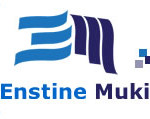In the rapidly shifting landscape of modern work, People Analytics has emerged as a powerful framework enabling Chief Human Resource Officers (CHROs) to make data-informed decisions. With the advent of artificial intelligence (AI), machine learning, and regulatory changes such as the EU AI Act, the need for strategic and ethical use of people analytics has become paramount. As organizations lean more heavily on AI to manage and optimize their workforce, the role of CHROs is transforming—from operational support to strategic influence, policy compliance, and implementation of responsible AI practices.
The Emergence of People Analytics
Originally limited to basic HR metrics and reporting, people analytics has evolved significantly over the past decade. Today, it incorporates advanced modeling, AI-driven predictions, and real-time data feeds. Modern systems can detect patterns in employee performance, forecast turnover, optimize recruitment, and help structure more inclusive practices.
This evolution has led to HR departments with analytics capabilities that rival those of finance or marketing. However, the complexity of these tools also introduces risks—particularly related to data privacy, algorithmic bias, and transparency. These risks are magnified under new obligations introduced by the EU AI Act.
Understanding the Impact of the EU AI Act
The EU AI Act, adopted to ensure the safe and ethical deployment of AI technologies in Europe, classifies AI systems based on their risk levels: minimal, limited, high-risk, and unacceptable. Many HR-related AI applications—including those used for recruitment, performance evaluation, and monitoring—fall under the high-risk category.
For CHROs, this means that AI systems used for managing people must meet specific legal standards. These include transparency, explainability, human oversight, and non-discrimination. More importantly, companies must ensure that HR professionals possess adequate AI literacy to both operate and evaluate such systems responsibly.
Why AI Literacy is Critical for HR Leaders
AI literacy doesn’t require coding expertise, but it does demand a strong understanding of how AI systems function, their potential shortcomings, and their ethical implications. CHROs and HR teams must be competent in:
- Interpreting model outcomes: Understanding algorithmic predictions and their confidence levels.
- Assessing bias: Identifying when models may produce discriminatory effects and taking corrective action.
- Ensuring transparency: Being able to communicate how AI decisions are made to affected employees.
- Meeting documentation standards: Keeping records of decisions, data inputs, and system evaluations as required by the EU AI Act.
Without these competencies, HR leaders could inadvertently expose their organizations to legal liability, reputational damage, or workplace inequality.
Building AI Literacy Capabilities in HR
To support compliance and drive strategic success, CHROs should take the lead in embedding AI literacy across the HR function. This can be achieved through a multifaceted approach:
- Partner with technical experts: Collaborate with data scientists, ethicists, and legal professionals to develop internal guidelines for responsible AI use.
- Invest in training: Provide structured training sessions specifically designed around HR-related AI applications and the provisions of the EU AI Act.
- Adopt ethical frameworks: Use established ethical AI frameworks to assess existing technologies and guide future purchasing or development decisions.
- Create AI oversight roles: Consider appointing AI governance officers within HR who can champion responsible use and act as liaisons with legal and compliance teams.
The Strategic Role of the CHRO in the AI Era
More than ever, CHROs are expected to lead not just people—but transformation. In navigating AI adoption, they must balance innovation with accountability. Those who embrace people analytics responsibly and cultivate AI literacy will enhance talent management, mitigate risk, and contribute to a stronger organizational culture rooted in fairness and transparency.
The ability to harness AI ethically will not only support compliance with evolving legislation like the EU AI Act but also differentiate forward-thinking organizations in a competitive employment market. Ultimately, it’s not just about digital transformation; it’s about ethical transformation—a task that falls squarely within the modern CHRO’s mandate.

